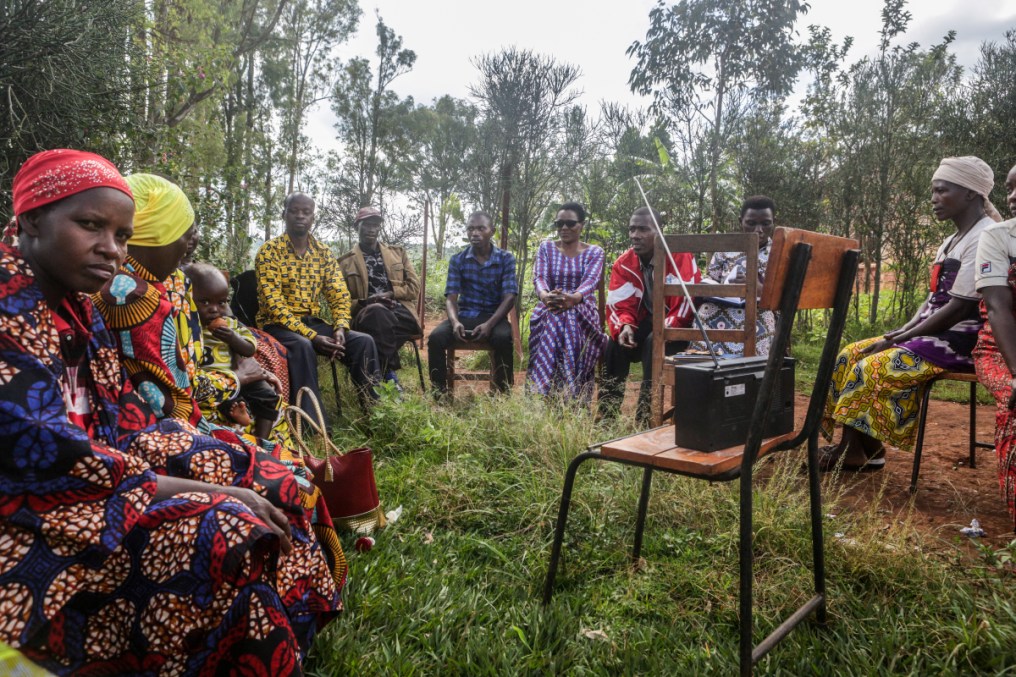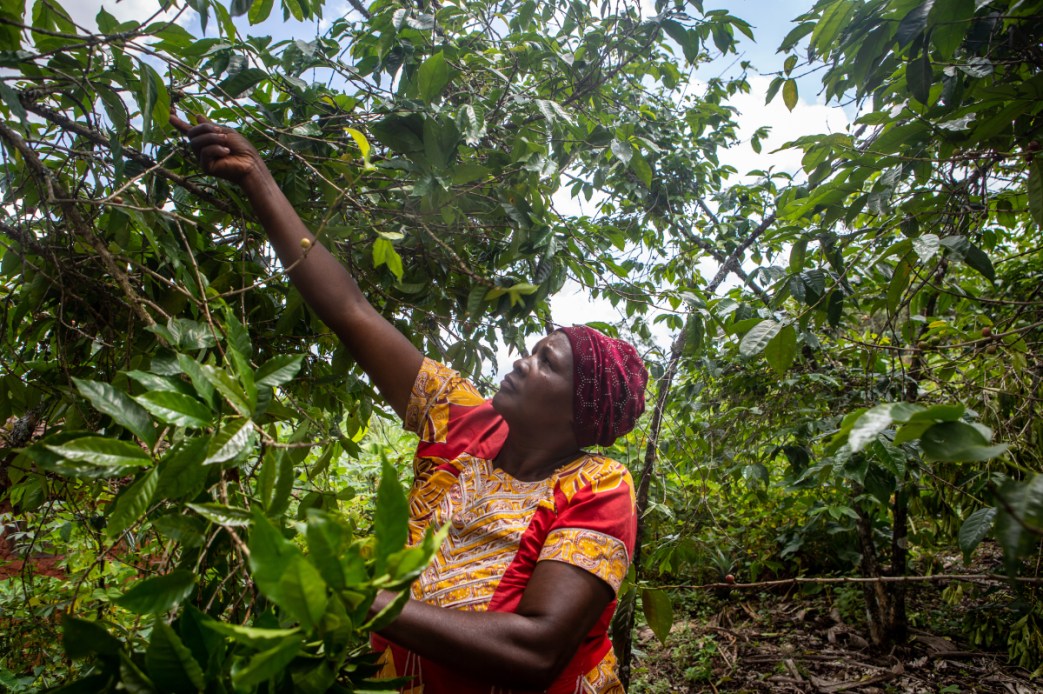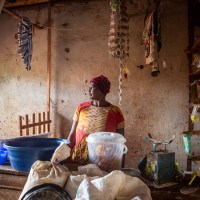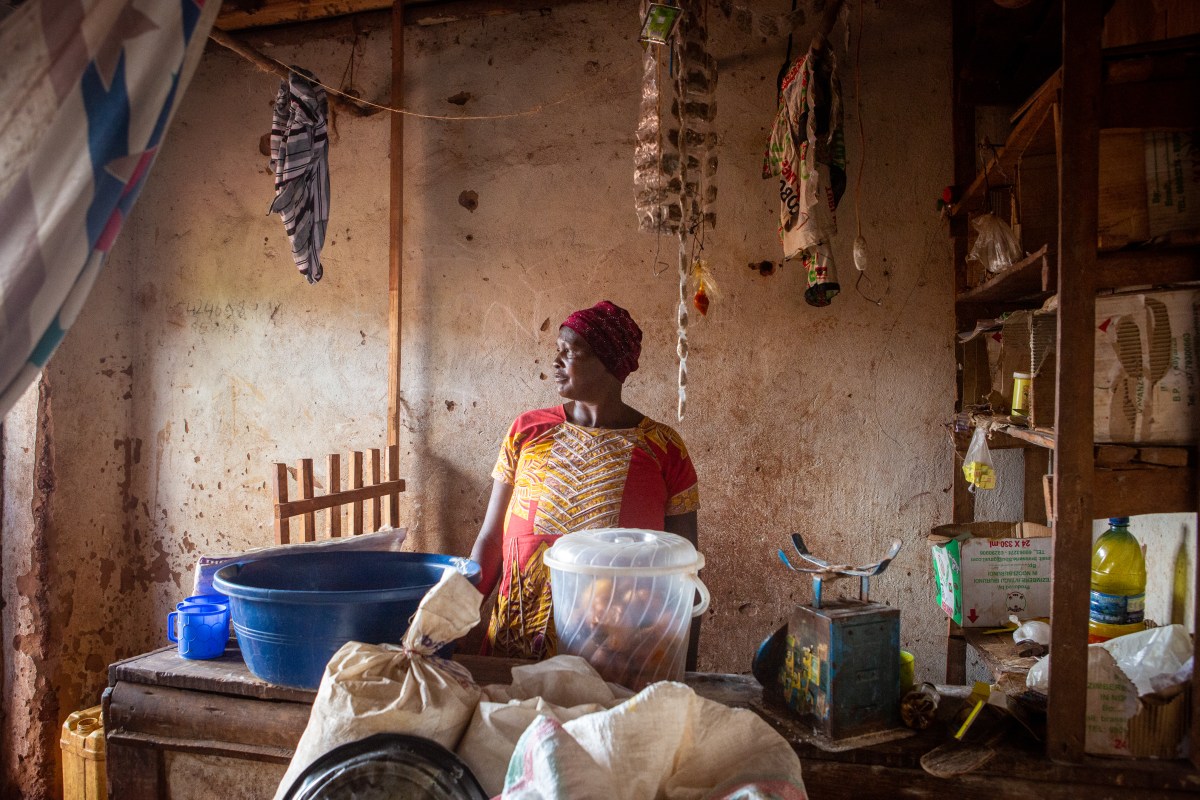“Why should development be exclusively reserved for men?” Pelagie asks. It’s a bold question, but Pelagie is a bold woman. As one of the first female butchers in her Burundian province, Pelagie is used to tackling gender inequality. She knows she can live different realities in one lifetime, that she is more than Burundi’s single story of womanhood.
In rural Burundi, cultural norms put all the household responsibilities on women but give them no say in household decision-making. Women have to collect firewood and water, cook, clean, care for children, and do the subsistence farming chores while men inherit the land and control the household finances. Because a woman’s role is in the home, societal attitudes dictate that she should not participate in income-generating activities.
Let’s Talk
Project Tuyage*, which means “Let’s Talk” in Kirundi, is one of our latest peacebuilding initiatives for women in Burundi. Talking is the foundation of the project, which facilitates access to economic information, builds financial literacy and entrepreneurial skills, and trains participants in conflict transformation techniques. Engaging people at the individual and community levels, Tuyage harnesses the power of radio,TV, including the Burundi version of Shark Tank, town halls, and the Common Ground Approach to promote economic empowerment and change gender norms.
Burundi is a strongly divided country, split along ethnic lines, economic class, and political issues. The Common Ground Approach invites representatives of every dividing line in conflict to identify the issues driving violence and agree on a solution everyone wants to realize. To reach this shared goal, adversaries need to cooperate with one another, which builds trust, leading to more future collaboration. Because Burundi is one of Africa’s poorest countries, facilitating economic empowerment was the common ground all Burundians agreed on.
Think about how hard trying something new is, especially when society tells you you shouldn’t or can’t because you are a woman. Without an example to follow, access to relevant information, or a support group to lean on, realizing an ambition is daunting and lonely. Living in rural areas isolated by physical distance compounds the loneliness. It’s easy to lose your nerve to try something new.
That’s why we incorporated listening clubs into Project Tuyage. Illiteracy and poverty have made radio the main source of information for Burundians, but not all rural households have radios. In our listening clubs, we gather up to 15 Burundian women and provide transportation to the club’s location. Sometimes, we supply the radios or rechargeable batteries as needed.

Listening Clubs Drive Real Impact
In the listening clubs, women gather to listen to weekly programs about female entrepreneurs produced by our Studio Ijambo. After the program, the women discuss how to use the information to establish their projects. We also conduct training sessions to develop women’s business skills and financial literacy so they feel confident to open their own businesses and empower themselves. In these sessions, women learn skills such as accounting, how to collect vendor and supplier information, and how to track the money they invest and the gains they make from their investments.
The listening clubs have evolved into village savings and loan groups. Each week, the women in a club contribute a small portion of their own money to a savings pot. At the end of the month, the money is loaned to a member who wants to start a business. The profit women earn from their businesses is their own to manage.
The listening clubs offer a place for women to be heard, supported, and nurtured. As participants see other women run successful businesses, they understand viscerally that they, too, can be successful and they, too, are more than a single story. Pelagie has been that kind of inspiration in her community. “Three other women from the community followed in my footsteps,” Pelagie proudly says.

Changing Norms
Because attitudes need to change before behavior can, we invite women and their husbands to receive training in the Common Ground Approach and positive masculinity and use them to solve disputes at home. Despite Pelagie’s success with her butcher’s shop, she had tensions at home, which made fulfilling her personal potential more difficult. She enrolled in a Common Ground Approach training. “When the trainers emphasized that to help the community, we first needed to resolve the problems at home, it struck a chord with me.” Project Tuyage runs training sessions on gender awareness and positive masculinity to raise community awareness of gender inequality. Having attended these training sessions, Pelagie and her husband now resolve conflicts together.
The business skills and financial literacy training sessions expanded Pelagie’s business acumen. In addition to her butcher shop, she has become a subcontractor for a coffee factory, manufactures soap, and manages two stores. Her confidence has skyrocketed. “Women in our community constantly underestimate themselves, and I was no exception. However, the project [Tuyage] motivated me to run for the position of hill chief, and I secured the position of vice chief. I also preside over 11 associations, each comprising around 30 women.”
Having a voice in household decision-making. Running successful businesses. Holding public office. These behavioral milestones would have been unimaginable for Burundian women not that long ago. Thanks to Project Tuyage, the women and men who participate in its training sessions, and our community of donors who make Project Tuyage possible, women in Burundi are changing their single story into the stuff of legends.
*We thank USAID for supporting Project Tuyage.


